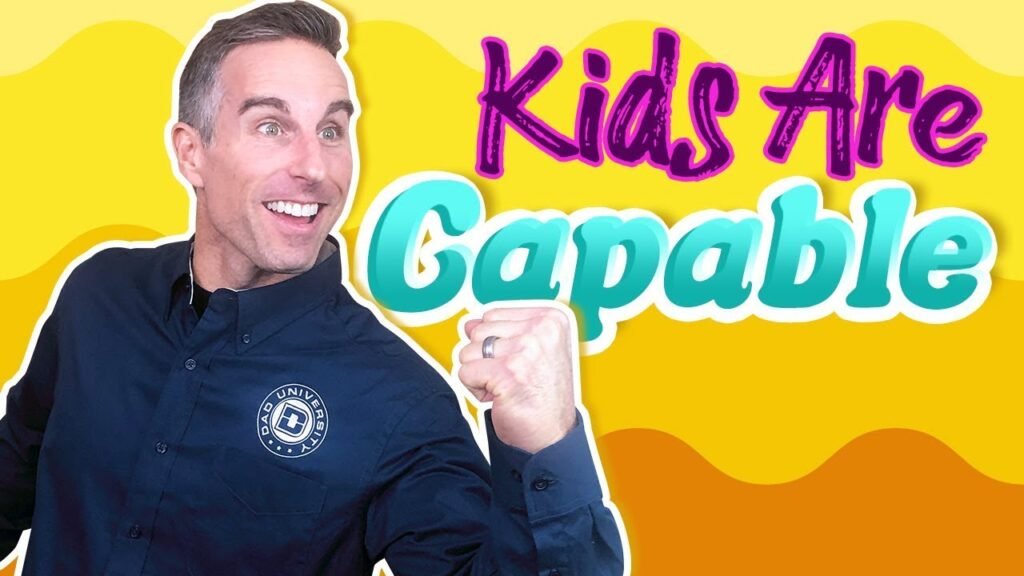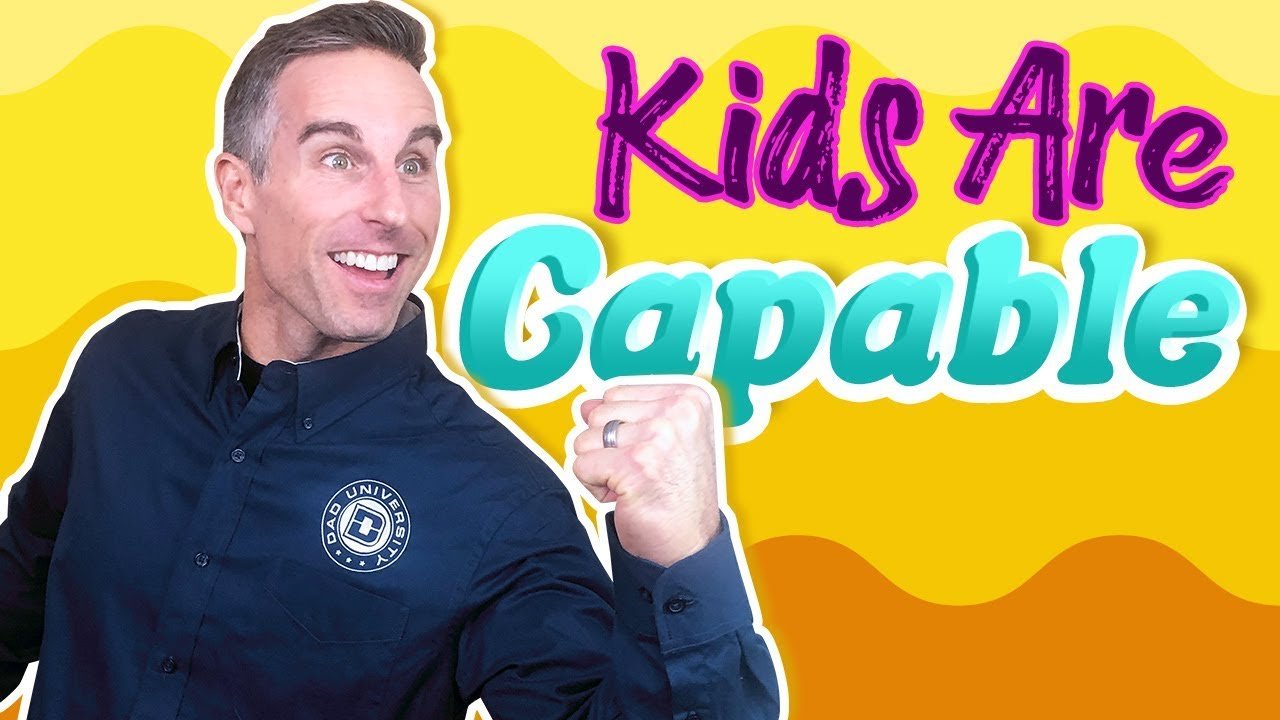Parents often underestimate the capabilities of their children, failing to give them the credit they deserve. The truth is that kids are much more capable than we often believe. It is our own limiting beliefs that hinder their development and growth. Instead of stifling them, we should allow them to show us what they can do. As long as the risks are minimal, we should encourage our children to explore their potential and support their capabilities. By eliminating our expectations and giving them credit where it is due, we can help our kids shine and reach their fullest potential.
It’s not uncommon for parents to be surprised by their children’s abilities. Whether it’s being brave enough to perform in front of an audience or taking risks, kids often exceed our expectations. By acknowledging and encouraging their capabilities, we can help them become confident and adventurous individuals. Our role as parents plays a significant part in their development, and by supporting and fostering their interests, we can shape their future. So let’s give our kids the credit they deserve and allow them to shine in their own unique ways.
Our Kids Are More Capable Than We Think
As parents, it’s easy to underestimate our kids and not give them enough credit or recognize their capabilities. However, the truth is that kids are much more capable than we give them credit for. It is our own limiting beliefs that can keep our kids stifled and prevent them from exploring their full potential. It is important for us to give them credit and eliminate our expectations that they are not capable. Instead, we should allow our kids to show us what they can do and not assume that they can’t do something. As long as it is not extremely harmful, we should consider the risks and let our kids shine and support their capabilities.
Underestimating Our Kids
It’s common for parents to underestimate their kids and not give them the recognition they deserve. We tend to have preconceived notions about what our children are capable of and what they should or shouldn’t be able to do. This underestimation can lead to stifling their potential and preventing them from taking risks and exploring new opportunities. By underestimating our kids, we limit their growth and development, and we may not even realize the extent of their capabilities.
Breaking Limiting Beliefs
One of the main reasons why we underestimate our kids is because of our own limiting beliefs. We may have been raised with certain beliefs about what is possible or what is safe, and we unintentionally pass those beliefs onto our children. It’s important to recognize and challenge these limiting beliefs, as they can hinder our kids’ progress and prevent them from reaching their full potential. By breaking these beliefs, we open up a world of possibilities for our children and allow them to explore their capabilities without unnecessary limitations.
Eliminating Expectations
Expectations can be a significant barrier to recognizing and encouraging our kids’ capabilities. When we have preconceived expectations about what our children should achieve or how they should behave, we inadvertently limit their potential. By eliminating these expectations, we create space for our kids to define their own path and discover their unique talents and abilities. It’s crucial to let go of rigid expectations and instead provide support, guidance, and encouragement as our children explore and develop their capabilities.
Allowing Kids to Show Their Capabilities
Instead of assuming that our kids are not capable of something, we should give them the opportunity to show us what they can do. Kids often surprise us with their abilities and resilience. By giving them the chance to shine, we not only boost their confidence but also create an environment that nurtures their growth. Whether it’s trying new activities, taking on challenges, or expressing themselves creatively, we should embrace and celebrate their capabilities and provide them with the support they need to thrive.
Risks Are Often Lower Than We Assume
As parents, we tend to be protective of our children and want to keep them safe from harm. However, in our efforts to protect them, we may sometimes overestimate the risks involved in certain activities. It’s important to remember that risks are often lower than we assume, and by being overly cautious, we may inadvertently stifle our kids’ growth and prevent them from exploring their capabilities.
Stifling Kids Even with Low Risks
We often stifle our kids even when the risks involved are minimal. We may fear that they will get hurt or fail, and as a result, we discourage them from trying new things or taking on challenges. However, by doing so, we restrict their opportunities for growth and learning. It’s important to assess the actual risks involved in a situation and consider whether the potential benefits outweigh those risks. By allowing our kids to take calculated risks, we empower them to develop resilience, problem-solving skills, and confidence.
Letting Kids Shine and Explore
Instead of letting our fears and worries hold them back, we should encourage our kids to shine and explore their capabilities. Whether it’s trying a new sport, pursuing a creative hobby, or participating in a challenging project, we should support their interests and passions. By providing them with the freedom and space to explore, we allow them to discover their strengths, develop new skills, and build their self-confidence. It’s through these experiences that our kids can truly showcase their capabilities and realize their full potential.
Supporting Their Adventurous Side
Children naturally have an adventurous side, and it’s our role as parents to support and nurture that aspect of their personality. While we need to ensure their safety and well-being, we should also allow them to take appropriate risks and explore new experiences. By doing so, we foster their sense of curiosity, resilience, and independence. It’s important to strike a balance between protecting our kids and giving them the freedom to explore, allowing them to grow and develop into capable individuals.

Parenting Style and Environment Influence
The way we parent and the environment we create for our children have a significant impact on their development and capabilities. Our parenting style, attitudes, and behaviors shape their perception of themselves and their abilities.
Impact of Parenting on Child’s Development
How we interact with our children, the expectations we have for them, and the values we instill in them all contribute to their development and capabilities. Positive and nurturing parenting can foster confidence, resilience, and a sense of self-worth in our kids. On the other hand, overly strict or critical parenting can hinder their growth and limit their belief in their own abilities. It’s important for us to reflect on our parenting style and make any necessary adjustments to create an environment that encourages our children to explore and develop their capabilities.
The Apple Doesn’t Fall Far from the Tree
Parents often influence their children’s interests, skills, and capabilities through their own behaviors and interests. Children observe and imitate their parents, and they are likely to develop similar interests and talents. If parents lead adventurous and explorative lives, it’s more likely that their children will develop these qualities as well. This is not to say that children are powerless to develop their own unique interests and capabilities, but rather, our parenting style and the environment we provide greatly shape their development.
Conclusion
In conclusion, our kids are much more capable than we often give them credit for. It is our own limiting beliefs, expectations, and fears that can stifle their growth and prevent them from exploring their potential. By recognizing and encouraging our kids’ capabilities, we empower them to thrive and develop into confident and capable individuals. It’s important to create an environment that supports their growth, allows them to take appropriate risks, and gives them the freedom to shine and explore. As parents, we have a significant impact on our children’s development, and by nurturing their capabilities, we can help them reach their full potential.

